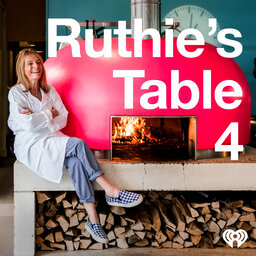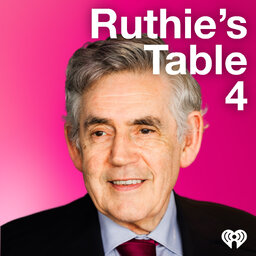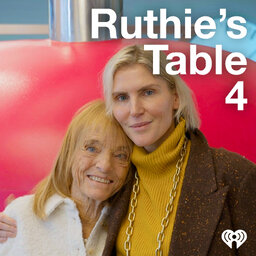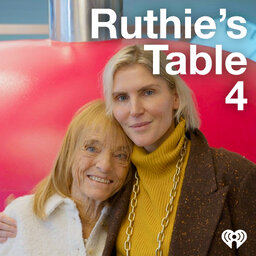Michael and Kim McCarty
When Michael McCarty walks into The River Cafe, he immediately fills the room with his warmth and kindness. Restaurants are, of course, what he knows best.
He and his wife Kim opened Michael’s in Santa Monica in 1979, bringing Californian cuisine to the world; artichokes, asparagus, tomatoes and peaches, grown in the sun and eaten under the sun. Ten years later, California came to New York when they introduced Michael’s to midtown Manhattan.
Today, they are with me in London, bringing their warmth and kindness to Table 4.
Ruthie's Table 4, made in partnership with Me+Em
 Ruthie's Table 4
Ruthie's Table 4


